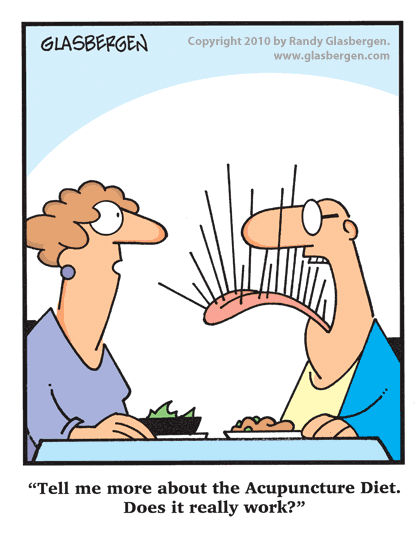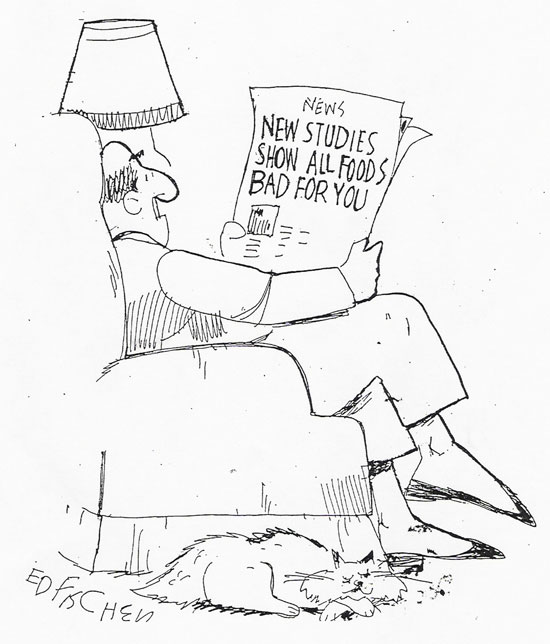
Thank you to everyone for feedback on the leptin post. I am grateful to have readers! One of the main questions I got after the post was "so, what should I eat?" In
answering this question, I gave what, at this point, has worked for me and can only be considered my opinion.
What I want you guys to realize is that I'm not trying to impose my
opinions and habits on you, but rather gather factual information that
you can use to form your own opinions and habits. Some of this
information resembles flashing red arrows pointing in a particular
direction, but otherwise, I think it's important that my opinions be
questioned. I don't want to be another person telling you what to eat.
There are far too many of those people out there already.
 Since
most of us don't have a particular zest for dissecting medical
journals, let's make reading about nutrition a little more fun. When I
was a
kid, the Sherlock Holmes series were some of my favorite stories.
Instead of feeling overwhelmed and lost in trying to decide what is good
for us and what is bad for us (and, ostensibly, sounding a bit like Chicken Little),
let's pretend we are Sherlock Holmes starring in the
greatest caper of the century. Think about it: If proper nutrition can
actually prevent the majority of chronic diseases and save millions of
lives, perhaps even save YOUR life, this really is the greatest mystery
you'll ever solve. Sherlock has a wonderful saying to
guide our quest: "It is a capital mistake to theorize before one has
data. Insensibly one begins to twist facts to suit theories, instead of theories to suit
facts."
Since
most of us don't have a particular zest for dissecting medical
journals, let's make reading about nutrition a little more fun. When I
was a
kid, the Sherlock Holmes series were some of my favorite stories.
Instead of feeling overwhelmed and lost in trying to decide what is good
for us and what is bad for us (and, ostensibly, sounding a bit like Chicken Little),
let's pretend we are Sherlock Holmes starring in the
greatest caper of the century. Think about it: If proper nutrition can
actually prevent the majority of chronic diseases and save millions of
lives, perhaps even save YOUR life, this really is the greatest mystery
you'll ever solve. Sherlock has a wonderful saying to
guide our quest: "It is a capital mistake to theorize before one has
data. Insensibly one begins to twist facts to suit theories, instead of theories to suit
facts." Well, dear Watson, today let's learn about what blocks leptin because it does a whole host of other things of interest as well. Due to the rising rate of diabetes, many people are now familiar with insulin, but let's review the basics anyway. Insulin is a hormone produced by the pancreas when it is processing/digesting carbohydrates.
For the sake of this discussion, let's also define a carbohydrate. A carbohydrate is a molecular compound found in nature that is composed of carbon, hydrogen, and oxygen. Remember in chemistry class where we learned words based on the periodic table? The generic formula for a carb is Cn (H2O)n, which we could call "hydrates (H2O) of carbon (C)" or "carbon hydrates." The most fundamental type of carbohydrate is simple sugar, which comes in the form of glucose, galactose, and fructose (this group is called the "monosaccharides"). These simple sugars can combine to form more complex carbs such as sucrose, lactose, cellulose, and starch (these more complex groups are called "disacharides" and "polysaccharides"). Combining these carbs with other things (such as fiber in bread and fruit) changes the rate at which your body breaks down and absorbs sugar, but, keep in mind, your body is still processing sugar.
When you ingest carbohydrates, such as a bowl of pasta, your body uses enzymes to break down the carbohydrates into glucose which then enters the bloodstream. This is why folks with diabetes have to measure their "blood sugar." If you do not have diabetes or prediabetes, carbohydrates stimulate your pancreas, which then produces insulin at a rate consistent with the level of sugar in the bloodstream. Insulin is a hormone, just like leptin, that communicates with your brain. Insulin tells your brain to stop the use of fat as an energy source. It also helps transport glucose out of the bloodstream and into muscle, fat, and liver cells. Insulin tells these cells to store the glucose that's been circulating in your blood.
Unlike "starvation mode" when your body is not getting enough energy for its basic functions and is slowing your metabolism and slowly burning your fat stores, when you ingest a significant amount of carbohydrates your body goes into "storage mode." Unlike leptin, which tells your brain that you are full, insulin tells your brain to keep eating while the body stores this treasure trove of carbs that you've just happened upon (score!). Remember, your body is looking out for you! Food has only recently been so plentiful, convenient, and inexpensive. Far before this occurred, your body developed a process to store energy, so that you don't starve when food is less plentiful (like in the winter). Insulin guides this process while leptin takes a nap. Until recently, our bodies have never been in continuous storage mode. In another post, I'll discuss the long-term effects of continuous storage mode.
Important side note to keep in mind for later: protein can also cause the pancreas to produce a bit of insulin. The stored form of glucose is called glycogen and it is required for rebuilding muscle tissue. Your body doesn't need carbohydrates to do this, however, as it can use protein, which is also a source of amino acids. However, too much protein will require your body to store glycogen elsewhere (such as fat cells). The amount of protein you need varies based on how much glycogen your muscles need.
Sources/further reading:
http://www.nhlbi.nih.gov/health/health-topics/topics/ms/
http://www.ncbi.nlm.nih.gov/pubmed/21713385
http://www.ncbi.nlm.nih.gov/pubmed/11566073
http://www.ncbi.nlm.nih.gov/pubmed/11596667
http://www.slideshare.net/ancestralhealth/ahs-slidesrobert-lustig
http://diabetes.niddk.nih.gov/dm/pubs/insulinresistance/#what








